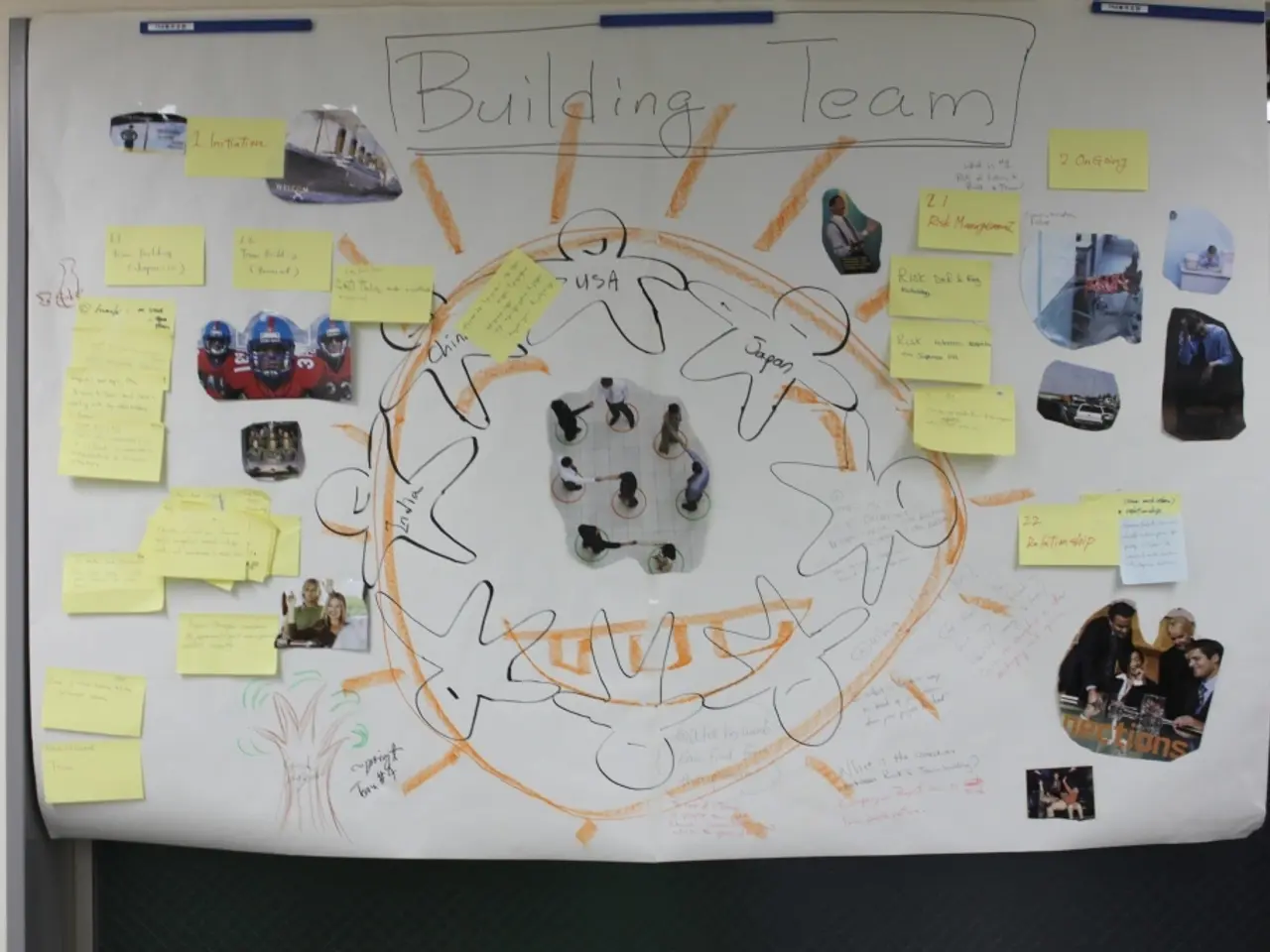Strategies to Prevent Exhaustion: Six Essential Tips for Improving Work-Life Synergy
Preventing Burnout at Work: A Guide for Employees
Working hard is essential, but it's equally important to prioritise your well-being. Here's a comprehensive guide on strategies to prevent and manage burnout, ensuring a healthier work-life balance.
Recognising Signs and Evaluating Work Habits
Paying attention to early warning signs of burnout is crucial. Look out for symptoms such as chronic fatigue, irritability, reduced performance, and emotional detachment. Regular self-assessment can help detect these signs early on [1]. Additionally, evaluating your workload and work hours realistically can help identify unsustainable habits and areas needing adjustment [2].
Setting Realistic Goals
Setting achievable, measurable objectives is key. Utilise goal-setting therapies like Solution-Focused Therapy to align your goals with your capacity and values [4]. Prioritising tasks and learning to say no diplomatically can prevent overcommitment [1].
Establishing Boundaries
Setting clear limits on work hours and availability is essential. For instance, you could choose to not work beyond 40 hours a week, and check email only during specified times [2]. Communicating your schedule and boundaries to colleagues and supervisors can help protect your personal time and reduce work spillover [2].
Practicing Self-Care
Prioritising sleep, incorporating mindfulness and meditation practices, engaging in regular physical activity, and taking breaks during work are all essential for managing stress and avoiding burnout. Prioritising natural, restorative rest without relying on sleep aids is important [1]. Mindfulness and meditation practices such as body scan or mindful breathing can reduce stress and improve emotional regulation [3]. Regular physical activity, whether aerobic exercise, yoga, or other forms, boosts mood, reduces anxiety, and enhances cognitive function [3][5]. Taking breaks during work, eating lunch away from your desk, and treating yourself periodically can help recharge [1].
Seeking Support
Building a support network, including friends, family, colleagues, and mental health professionals as needed, is essential for preventing burnout and maintaining a healthier work-life balance. Consider counseling options like Cognitive Behavioral Therapy (CBT) or Acceptance and Commitment Therapy (ACT) to challenge negative thoughts, manage emotions, and develop coping skills [4].
Creating a Plan for Success
Developing a structured plan that combines managing workload, self-care routines, emotional awareness, and support seeking can help balance demands and personal well-being. Regularly reassess your goals and boundaries to adapt to changing circumstances, ensuring sustained progress and preventing relapse into burnout [4][5].
For more detailed information on these topics, check out Indeed’s career advice articles for clear frameworks and practical tips on preventing burnout and setting boundaries at work [1][2]. Explore counseling-focused resources and guides on managing staff burnout for expert guidance on self-care strategies and professional therapy approaches [3][4]. Personal recovery strategies, such as limiting media intake and spending time outdoors, can complement professional advice to create a holistic burnout management plan [5].
Remember, seeking support from colleagues, friends, and family can provide the emotional support and encouragement needed to navigate challenging times.
- Recognizing early signs of burnout, such as chronic fatigue and emotional detachment, is crucial in preventing burnout, and regular self-assessment can help detect these signs early on.
- To avoid burnout, setting achievable, measurable objectives, prioritizing tasks, and learning to say no diplomatically can prevent overcommitment.
- Establishing clear boundaries, such as not working beyond 40 hours a week or checking email only during specified times, is essential for protecting personal time and reducing work spillover.
- To manage stress and avoid burnout, prioritizing self-care routines like sleep, mindfulness and meditation practices, regular physical activity, and taking breaks during work are all essential.
- Seeking support from a network of friends, family, colleagues, and mental health professionals as needed, is essential for preventing burnout, and exploring counseling-focused resources and guides on managing staff burnout can provide expert guidance.
- Developing a structured plan that combines managing workload, self-care routines, emotional awareness, and support seeking, and regularly reassessing goals and boundaries, can create a sustainable plan for personal growth, career development, and workplace-wellness.




